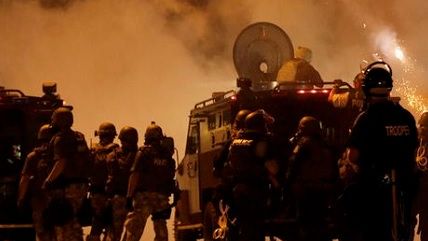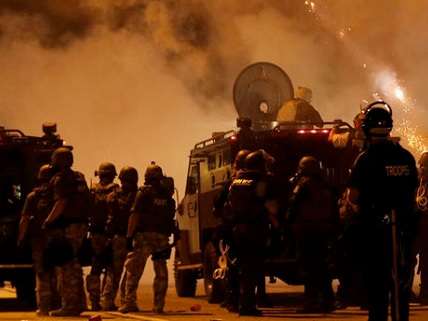NBC News Highlights Low Pay Offered by Some St. Louis-Area Police Departments


NBC News has a story on its website based on pay data collected from 24 police departments in the St. Louis Area, arguing that the gap from department to department means "Many of America's Finest Struggle on Poverty Wages," as the headline notes.
The story itself doesn't include too much substance; the average pay for the 24 departments is listed but mostly NBC News talks to an officer paid $10.50 an hour in Hillsdale. Unsurprisingly, because the piece is trying to find sympathy for cops, the officer chosen to feature the gap through is African-American.
Here's a quote that comes close to a substantive point for the piece:
"In areas without a tax base to speak of, where residents live in poverty already, communities are saddled with a police force that is underpaid and under resourced in other ways," says David Harris, a University of Pittsburgh law professor who studies policing. "It's another form of a penalty for being poor."
Unmentioned is Radley Balko's recent expose for The Washington Post, which found municipalities across the St. Louis-area using the poor, and policing them with fines and penalties, as a significant source of revenue. All the "resources" that come from the transfer of military surplus from the federal government to local police agencies was also unmentioned.
Neither was there any attempt to correlate high pay with decent service. Do cities with better paid cops have better behaved cops? I don't know of any evidence that points to that, and the NBC piece didn't try to tackle the question at all. Instead, it played to emotion. NBC News' cable affiliate has spent the last several months taking a critical, if racialized, look at policing in the United States. In that context, this piece wasn't surprising. It didn't have the kind of information that would be useful, like what's listed above, nor did it address how police brutality and union rules that protect bad cops contribute to police departments not having the resources to, uh, properly serve poor people.
But what is listed is how much Darren Wilson, the Ferguson cop who shot and killed Michael Brown, is getting paid, along with the observation that it's more than the cop NBC News featured in its story.
It's not a story interested in structural police reforms, the kind that would lead to better cops and even better pay, insomuch as eliciting an emotional reaction, grafting the issue of income inequality onto the issue of police conduct, and maybe playing the race card.


Show Comments (130)